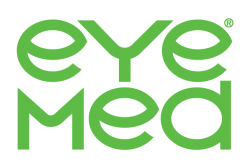Oakland University’s Academic HR Team Implements Diversity Advocate Program to Increase Underrepresented Minority Faculty Hires
Oakland University’s Academic HR Team is the recipient of
CUPA-HR’s 2021 Inclusion Cultivates Excellence Award.
Sponsored by

 To mitigate forms of bias that might emerge throughout the hiring process, Oakland University’s academic HR team developed the Diversity Advocate (DAs) Program.
To mitigate forms of bias that might emerge throughout the hiring process, Oakland University’s academic HR team developed the Diversity Advocate (DAs) Program.
The Diversity Advocate Program trains designated members of faculty hiring committees to serve as Diversity Advocates (DAs) throughout the faculty hiring process. During DA training, participants are introduced to topics including best practices for recruiting a diverse applicant pool, mitigating bias in evaluating candidates, creating an inclusive environment for newly hired faculty, and given opportunities to discuss and apply these concepts.
As a voting member of the search committee with a specific focus on diversity, equity, and inclusion (DEI), the DA is able to facilitate thoughtful conversations within the committee and examine where biasing language or practices may impact the diversity of applicants.
The academic HR team, with direct support from the university’s executive vice president for academic affairs and provost, established the DA program. Academic HR worked directly with the provost fellow, meeting on a weekly basis to strategize and develop the program, to facilitate in-person training and worked hand-in-hand to build out the online training module. Since the rollout of the DA program, more than 120 people have participated in the training. As of 2020, all faculty searches at Oakland University are required to have a designated DA.
According to program evaluations, faculty who participated in the DA training found it valuable and felt it prepared them well for meaningful participation as search committee members and DAs. In addition, all faculty searches now require applicants to submit a diversity statement, a policy which supports the efforts of DAs and search committees to explicitly value candidates’ potential to advance DEI as a formal criterion of evaluation.
Although the model of the DA program is based on an established model for increasing diversity in faculty hiring, the program stands out for not only its success, but its widespread deployment across the university, which has led to the adoption of parallel processes in other areas where issues of equity in the evaluation of faculty are identified. Due the success of the DA program, a similar initiative is being piloted for staff positions.
As evidence of the success of the DA Program, the percentage of underrepresented minority (URM) faculty has measurably increased during the time the program has been operating. Data show the number of URM faculty at the university has increased from 52 in 2017, the year before the DA program began to 59 in 2020.
Moreover, as a starting point for larger campus-wide conversations about faculty diversity, the DA program has also sparked interest in and led to the development of other supplementary trainings on DEI topics. These have included mitigating bias in the evaluation of teaching, a discussion of URM faculty retention and campus environment, and an audit of university policies that impact DEI, such as family leave and accommodations.
By training current faculty to recruit for diversity and mitigate potential bias in the hiring process, it has provided a concrete framework for increasing the diversity of Oakland University’s faculty, which has in turn proven to support the recruiting and academic success of historically underrepresented students.
About the Inclusion Cultivates Excellence Award:
CUPA-HR’s Inclusion Cultivates Excellence Award recognizes and celebrates institutional initiatives and programs that have made a significant impact with respect to inclusive and equitable workplace practices, particularly those that have brought about cultural change throughout the organization. Thanks to support from EyeMed, the award comes with a $5,000 contribution to the recipient’s institutional endowment or a scholarship fund. Learn more.
